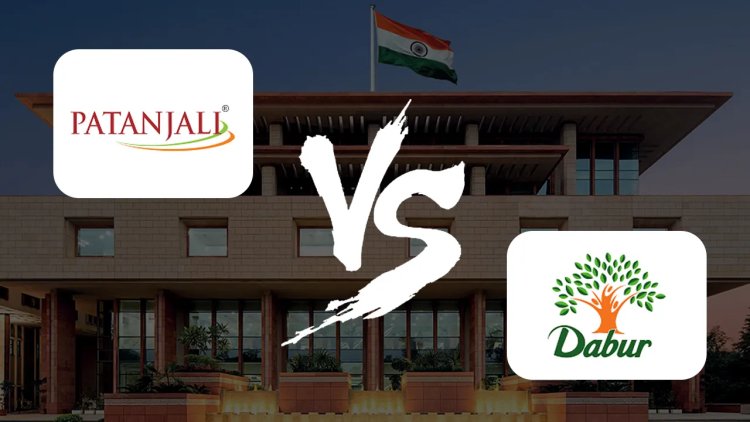Dabur Takes Patanjali to Court Over Misleading Chyawanprash Ads
Dabur sues Patanjali over ads claiming its Chyawanprash is “original.” Discover the legal battle brewing in the Ayurvedic health market.

In a high-stakes legal battle, Dabur, one of India’s leading consumer goods brands, has filed a lawsuit against Patanjali Ayurved in the Delhi High Court. The dispute centers around a series of advertisements that Dabur claims are misleading and disparaging toward its Chyawanprash products, a staple in the Ayurvedic health market.
The advertisements in question feature Patanjali’s founder, Swami Ramdev, who reportedly questions the authenticity of other Chyawanprash brands. In the ad, Ramdev asserts that only Patanjali Special Chyawanprash is "original" and implies that competitors, including Dabur, lack proper Ayurvedic knowledge. These claims, Dabur argues, are not only false but also damaging to its reputation and market share.
Senior Advocate Akhil Sibal, representing Dabur, argued that the advertisement undermines the credibility of all Chyawanprash products except Patanjali’s. He stressed that according to the Drugs and Cosmetics Act, every Chyawanprash must adhere to formulations outlined in ancient Ayurvedic texts. Describing other brands as “ordinary” is both misleading and harmful, especially to Dabur, which holds a commanding 61.6% share of the market.
Sibal also pointed out the widespread reach of the controversial advertisement. In just three days, it was broadcast 900 times across major TV channels like Colors, Star, Zee, Sony, and Aaj Tak, in addition to being published in the Delhi edition of Dainik Jagran. He argued that such aggressive promotion could mislead consumers into believing that Dabur’s products, and those of other competitors, are inferior or unsafe.
On behalf of Patanjali, Senior Advocate Jayant Mehta questioned the validity of Dabur’s claims and requested additional time to prepare a response. While Justice Mini Pushkarna, presiding over the case, initially suggested mediation, Dabur’s legal team emphasized the urgency of the matter, leading the court to proceed with the hearing.
As the hearing is scheduled for late January, the outcome of this legal clash could significantly impact both brands and the broader Ayurvedic product market. For now, Dabur seeks immediate intervention to prevent the airing of the controversial ads, asserting that their misleading nature threatens consumer trust and the company’s hard-earned market position.
With two of India’s biggest Ayurvedic giants locked in this dispute, all eyes are on the Delhi High Court to deliver a verdict that could set a precedent in the realm of advertising ethics and consumer protection.

 Deepanjali
Deepanjali 










